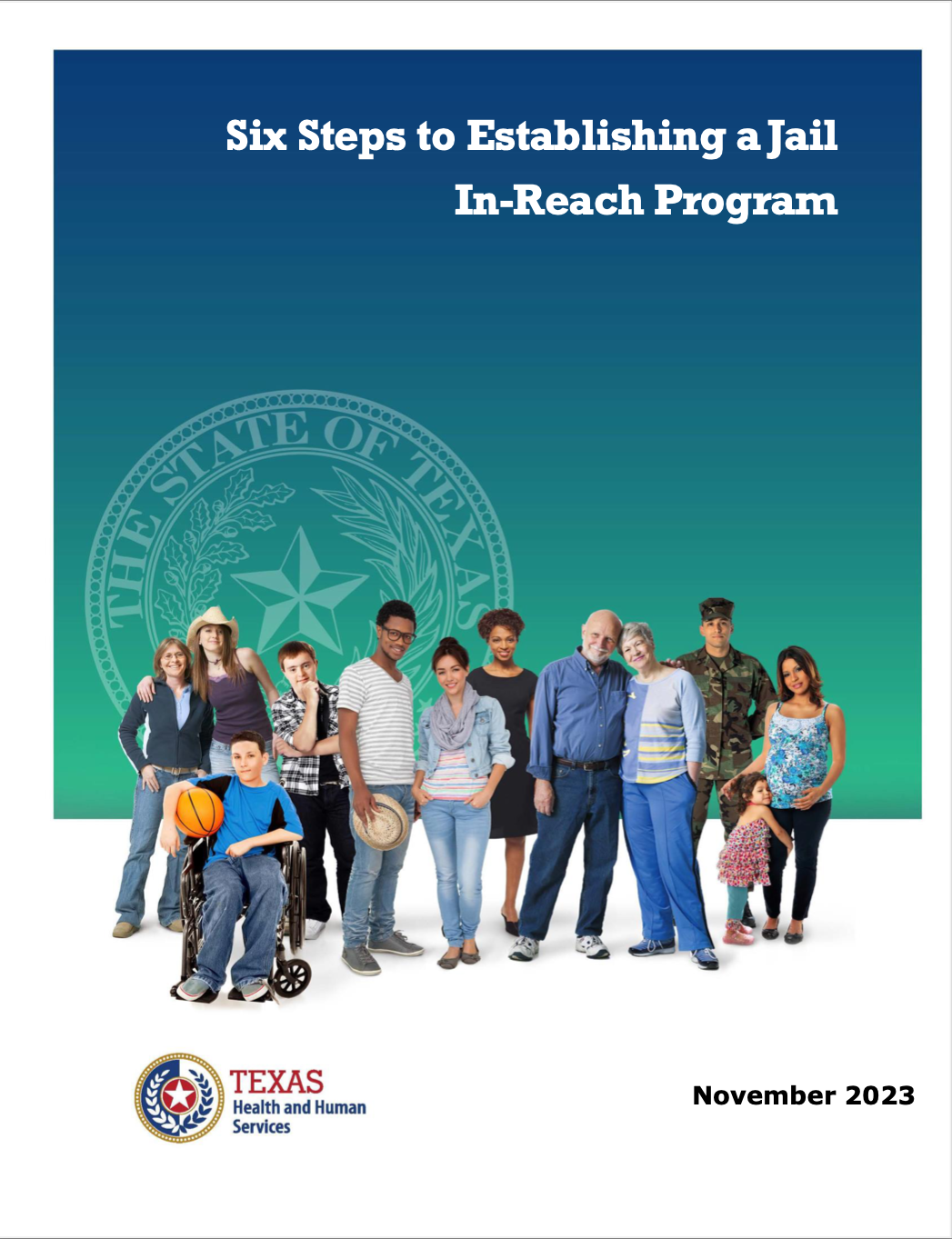In Progress: JIRLC Cohort 4
The fourth cohort of the Jail In-Reach Learning Collaborative is a peer-to-peer learning opportunity for county teams to identify strategies to actively monitor people who have been found incompetent to stand trial (IST) and to reduce the wait for inpatient competency restoration services. Participating teams will receive free monthly technical assistance, legal education, and clinical and forensic consultation services.
The application period for JIRLC Cohort 4 is now closed.
Texas Jail In-Reach Learning Collaborative
The Jail In-Reach Learning Collaborative (JIRLC) assists county forensic teams in finding ways to actively monitor and support people in county jails who have been found incompetent to stand trial and are waiting for admission to a Texas state hospital.
Who Participates in the JIRLC?
County forensic teams with representation from local mental and behavioral health authorities, county sheriffs' offices, jail personnel, prosecutors, defense counsel, and the judiciary.
What Does the JIRLC Offer?
Participants work directly with the Health and Human Services Commission Health and Specialty Care System team, the Office of Forensic Coordination, Forensic and Jail Diversion Services, and Legal Services Division to receive:
Clinical Consultations
Support with difficult clinical cases.
Assistance with medication management.
Guidance on court-ordered medications.
Forensic Services
Free competency screenings and reevaluations.
Expedited admission considerations.
Maximum-security unit waiver re-reviews.
Alternate disposition considerations.
Legal Education
Legal and statutory requirements.
Court-ordered medication process.
Alternate dispositions.
Planning Support
Strengthening and engaging county forensic teams and local stakeholders.
Engagement in behavioral health and justice systems planning with peer-to peer learning opportunities.
Why Join the JIRLC?
The JIRLC offers peer-to-peer learning and networking with behavioral health and justice system professionals from across Texas via:
Four two-hour virtual training sessions.
Seven one-hour technical assistance calls featuring expert speakers from across Texas and the U.S.
Ongoing one-on-one support to enhance collaboration and coordination with local behavioral health and justice system stakeholders.
Jail In-Reach Learning Collaborative (JIRLC) Resources
The resources below are distributed to members of the JIRLC.
JIRLC Summary is a brief document explaining the services available to county forensic teams and an overview of the commitment required.
JIRLC Request Form for Consultation or Technical Assistance can be used by current or former cohort members to request assistance on forensic services, legal education, clinical consultation, planning support, and more.
JIRLC Explanation of Assistance Types (Algorithm) is a document to offer greater detail on the assistance types listed on the request for consultation or technical assistance form.
JILRC Workbook serves as a foundational reference for county forensic teams participating in the learning collaborative.
Establishing a Jail In-Reach Guide highlights six essential steps launching a jail in-reach program to actively monitor people in county jails who have been found incompetent to stand trial (IST) and are awaiting admission into a state hospital.
Court-Ordered Psychoactive Medications Guide is a brief document that summarizes statutory authority for court-ordered medications and credible evidence of immediate restoration.
Standardized Clinically Based Competency Screening Guide is a brief document summarizing the screening tool that was developed for use by the State Hospital System to ascertain individuals’ progress toward trial competency restoration.
Forensic Expedited Admission Process Guide is a brief document summarizing the clinical and non-clinical considerations for a person to be moved to an appropriate bed ahead of others.
Trial Competency and Forensic Commitments 101 provides general information on the forensic commitment and competency restoration process.
Maximum-Security Unit Waiver Process guide is a document that summarizes a maximum-security unit (MSU) waiver process, how an MSU waiver can get approved, and details on what a clinical security review entails.
Texas and Federal Privacy and Information Sharing Provisions reference commonly used state and federal statutes related to information sharing related to behavioral health.
Diversion and Competency Workflow features stakeholder role in determining diversion opportunity for a person with behavioral health needs, including as relates to people found incompetent to stand trial.

